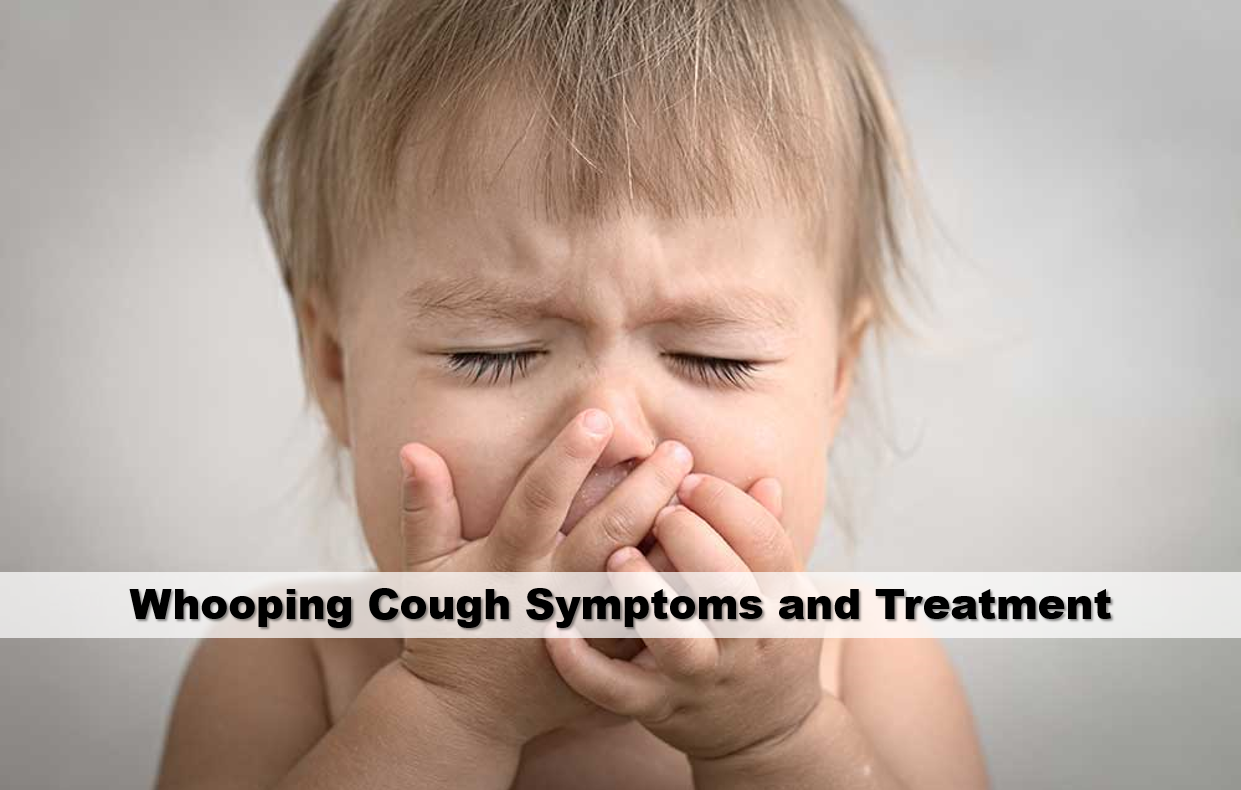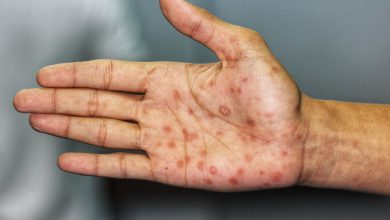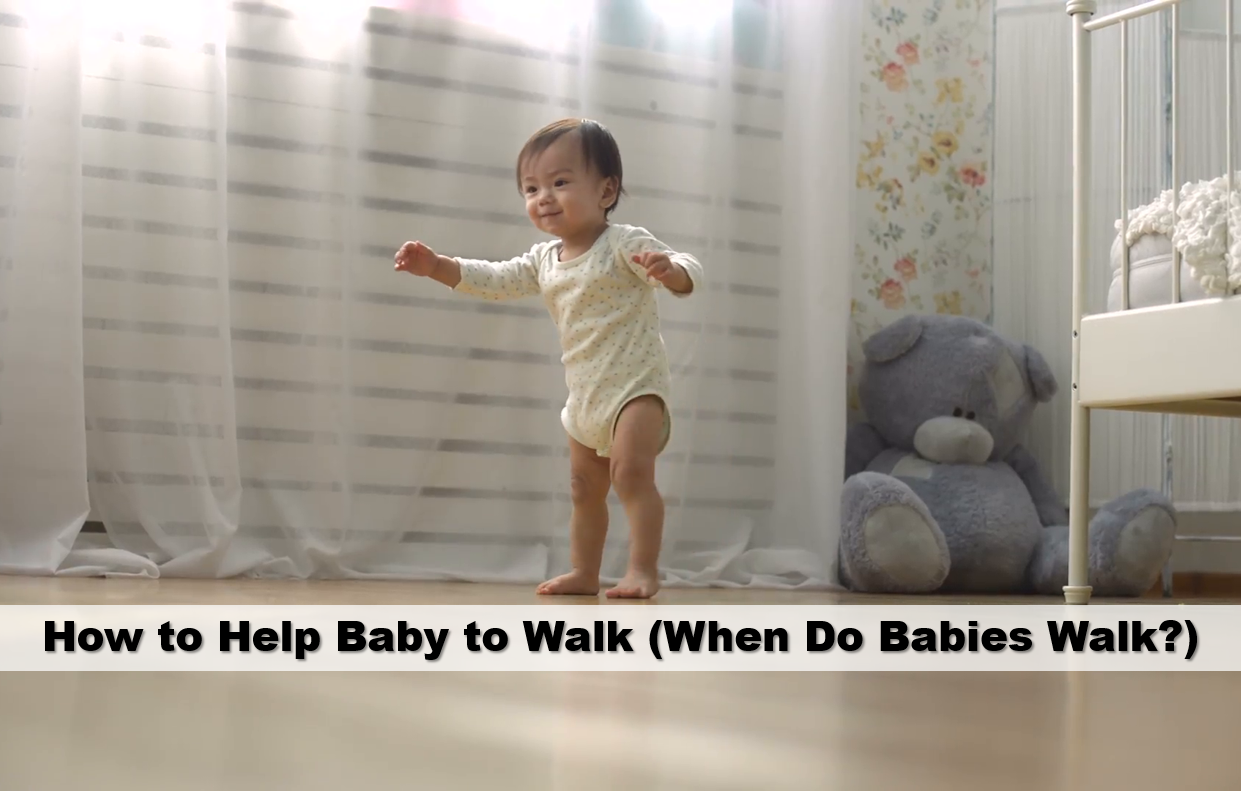Whooping Cough Symptoms and Treatment

What are the first signs of whooping cough? How do you know if you have whooping cough? Whooping cough is a highly contagious bacterial infection of the lungs and airways, and it causes severe coughing. Before the whooping cough vaccine was developed, the disease was a major childhood infection.
Nowadays, whooping cough affects only children and teens with incomplete vaccine doses and adults with weak immune systems. Whooping cough spreads through coughing or sneezing droplets of an infected person. The most significant symptoms of whooping cough are severe cough and shortness of breath. If diagnosed early, treatment with antibiotics is possible. Here, we will explain the symptoms and treatment of whooping cough (pertussis).
What Is Whooping Cough?
Whooping cough, also known as pertussis, is an acute microbial disease of the upper respiratory tract. Bordetella pertussis bacterium in the body as a result of the spread of the disease symptoms appears. Late treatment results in permanent damage and disability to various organs of the body. It causes coughing attacks that last for 2 to 3 months or more and is particularly severe in infants and young children. Four out of 100 infants who are infected can die.
How Can You Catch Whooping Cough?
Whooping cough is a highly contagious respiratory disease. When an infected person coughs or sneezes, small germicidal droplets are sprayed into the air, and as a result of inhalation of these droplets by someone nearby, they reach the airways, causing illness. Close contact with the patient, such as talking at close range or kissing, may also cause contamination.
What Are Whooping Cough Symptoms?
The first symptoms of whooping cough are rhinorrhea, eye redness, and discharge, sore throat, and fever. Intense coughing attacks start about one week after these symptoms. Whooping cough is often mistaken for the common cold in its early stages. Therefore, health professionals cannot suspect pertussis or diagnose the disease, until more serious symptoms appear. Symptoms seen in later stages may include:
- Coughing attacks: It usually starts at a time and takes a few minutes. Seizures tend to be more common at night. Coughing is usually associated with intense viscous sputum and may be followed by vomiting.
- Shortness of breath: Shortness of breath may occur between coughing seizures and may cause a different sound. Whooping cough can cause repeated and severe coughing until there is not enough air in the lungs. When there is no air in the lungs, the patient is forced to breathe in an attempt to compensate for the lack of oxygen.
- Bruising on the bed of lips and nails: Bruising called cyanosis occurs as a result of a lack of oxygen in young children due to difficulty in breathing.
- Respiratory arrest: In very young infants, a cough may not be very clear; however, short-term periods of respiratory arrest called apnea are observed. It is dangerous and half of the infants under one year of age are treated in hospital for this reason.
- Redness: Redness may occur on the face due to the cough pressure. Slight bleeding may occur under the skin or in the eyes.
- Weakness and fatigue: Due to coughing attacks, the patient becomes extremely tired and sluggish.
- Vomiting: Coughing attacks can cause vomiting.
- Diarrhea: Diarrhea may also occur.
|What Triggers Coughing? (How to Prevent )|
Whooping Cough In Infants
Whooping cough causes repeated coughing attacks that can last for 2 to 3 months or more, making infants and young children particularly sick. In infants younger than 18 months of age, whooping cough may cause a complete cessation of breathing. Infants under six months and children are often severely affected by whooping cough. There is an increased risk for infants in the following situations;
- Excessive fluid loss resulting in dysfunction of the body,
- Respiratory difficulty,
- Weight loss,
- Epileptic seizures,
- Kidney problems,
- Brain damage due to insufficient oxygen supply to the brain,
- Older children and adults tend to be less affected than infants, although they may suffer from recurrent severe coughs, such as nosebleeds, rib damage, or hernia.
Whooping Cough Treatment
If you experience the symptoms mentioned above, you should see a doctor. First, If pertussis is diagnosed at an early stage, antibiotic therapy may be useful to reduce cough and other symptoms. Early treatment also reduces the chance of infection. Antibiotics may be effective in controlling the disease in the first three weeks. Pertussis treatment varies depending on the patient’s age and how long the infection started. If the symptoms started three weeks ago, only supportive treatment is given. Antipyretic drugs are used for resting, abundant fluid intake, and lowering high body temperature. Using medicine for cough is not helpful to stop coughing; these drugs can have serious side effects and are therefore unsuitable for use in young children.





